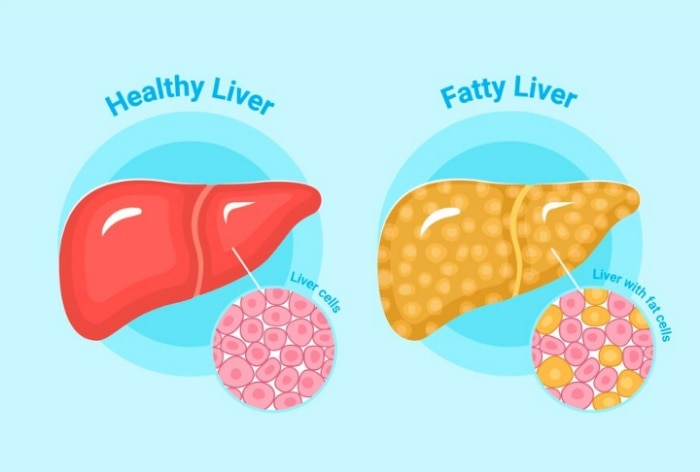Fatty liver is becoming more common in this contemporary sedentary lifestyle. But can this really be reversed? This is what we know.
In this sedentary lifestyle, diabetes, high blood pressure and high cholesterol have become increasingly common. Fatty liver disease or hepatic steatosis is another of these diseases. It occurs when excess fat accumulates in the liver. It can be caused by several factors, including obesity, poor diet, and excessive alcohol consumption. But can fatty liver be reversed? Fatty liver can often be reversible with lifestyle changes, but it also depends on the health of the liver. In some cases it can be reversed but in other cases it may not be able to be completely reversed but can be managed with some daily habit changes. Here are five practical ways to help reduce fatty liver and improve liver health.
5 Ways to Reduce Fatty Liver Buildup
- Healthy diet: A balanced diet is crucial to reversing fatty liver. Focus on whole, nutrient-dense foods, avoiding processed and high-sugar options. Try to eat a variety of colorful fruits and vegetables that are rich in antioxidants and fiber. These help reduce inflammation and promote liver health. Incorporate sources of healthy fats, such as avocados, nuts, seeds and olive oil. These fats help improve lipid profiles without contributing to fat accumulation.
- Maintain a healthy weight: Losing weight can significantly reduce liver fat. Even a modest 5-10% weight loss can have a positive impact on liver health. Try to lose weight gradually through a combination of diet and exercise. Rapid weight loss can worsen liver inflammation. Use apps or journals to monitor your food intake and physical activity. This accountability can help you stay on track.
- Stay physically active: Regular physical activity is essential for burning excess fat and improving overall health. Activities such as walking, cycling, or swimming can be effective. Add resistance exercises at least two days a week. Building muscle can help increase metabolism and promote weight loss.
- Limit alcohol consumption: Excessive alcohol consumption contributes significantly to fatty liver disease. Reducing or eliminating alcohol can help reverse liver damage. If you choose to drink, do so in moderation. Typically, this means up to one drink per day for women and up to two for men. For those who have been diagnosed with fatty liver disease, complete abstinence may be advisable. Consult with a healthcare provider for personalized recommendations.
- Control blood sugar and cholesterol: High blood sugar and cholesterol levels can exacerbate fatty liver. Monitoring and controlling these levels is crucial for liver health. Work with your healthcare provider to monitor blood lipid and glucose levels. If necessary, follow a treatment plan that may include medications or lifestyle changes.
Focus on low-glycemic foods that stabilize blood sugar levels, such as whole grains, legumes, and lean proteins.
Reversing fatty liver is possible through committed lifestyle changes. However, it is always best to consult with a health professional before making significant changes to your lifestyle or diet, especially if you have underlying health problems. By prioritizing your liver health, you can improve your overall well-being and reduce your risk of additional complications.
